CTWM STAFF
DR. CLIVE LIPCHIN Director, Center for Transboundary Water Management clivearava@gmail.com
FAREED MAHAMEED Assistant Director, Center for Transboundary Water Management fareedalien4@gmail.com
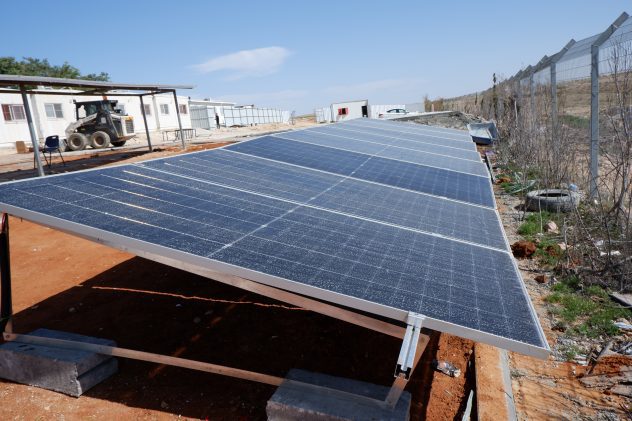
The challenge: Living a cycle of marginalization
Approximately one third of the 300,000 Bedouins in Israel live in “unrecognized villages” which lack access to water and energy infrastructure. Gaining recognition and access to government services often requires Bedouins to relinquish their claims to land ownership, a process complicated by the disparity between traditional inheritance practices and the Israeli legal system. This legal limbo perpetuates a cycle of marginalization, leaving Bedouin communities grappling with profound water, sanitation, and hygiene (WASH) challenges due to the lack of essential services.
The insufficient access to energy infrastructure and clean water not only burdens public health and the environment but also has widespread socio-economic ramifications for the community’s development, such as high poverty and unemployment rates. According to recent surveys, over 70% of Bedouin households living in unrecognized villages lack access to piped water, and nearly 90% lack access to wastewater collection and treatment services. Bedouins living in unrecognized villages need urgent solutions to meet critical needs in a way that overcomes the combination of legal, socio-economic, and cultural complexities that have led to neglect and stagnation in addressing the issue.
Finding the loophole: Bedouin schools as a ground for change
In many cases, schools in unrecognized Bedouin villages are the only permanent and legal structures not at risk of demolition. These schools are managed by the Israeli Ministry of Education and serve as critical hubs and community centers within Bedouin communities, despite the lack of formal recognition for the villages themselves. By focusing on providing necessary services within educational institutions, such as water, electricity, and sanitation, Israeli authorities can indirectly address infrastructure needs in these marginalized areas without compromising broader centralization policies. As approximately 50% of the Bedouin population is under the age of 18, investing in school-based infrastructure represents a strategic opportunity to positively impact a significant portion of the Bedouin population while laying the groundwork for future development initiatives within the communities.
Overcoming barriers through decentralized technology
In partnership with the Al-Furaa Regional School, the Arava Institute for Environmental Studies has established an “Off-Grid Hub” based on a water-energy-food nexus framework. Recognizing the interconnectedness of these vital resources, the Hub features innovative technologies providing sustainable sanitation, drinking water, energy, and organic waste management. Decentralized technologies offer a unique path towards overcoming institutional barriers, and can be rapidly deployed, easily replicated, and scaled to meet growing needs.
About the technologies
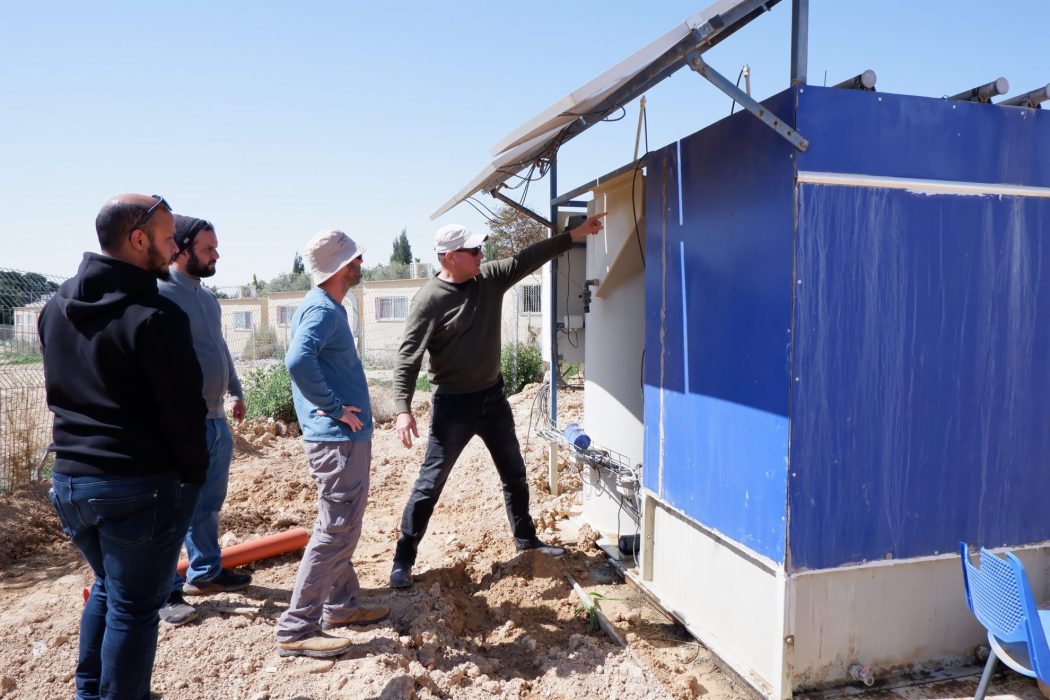
Laguna Innovation
A plug-and-play off-grid wastewater treatment system that recovers high quality water for reuse in irrigation and for other non-consumptive uses. This technology is virtually sludge-free, energy-autonomous, and remote-monitored to offer adequate wastewater treatment where centralized systems are infeasible or failing
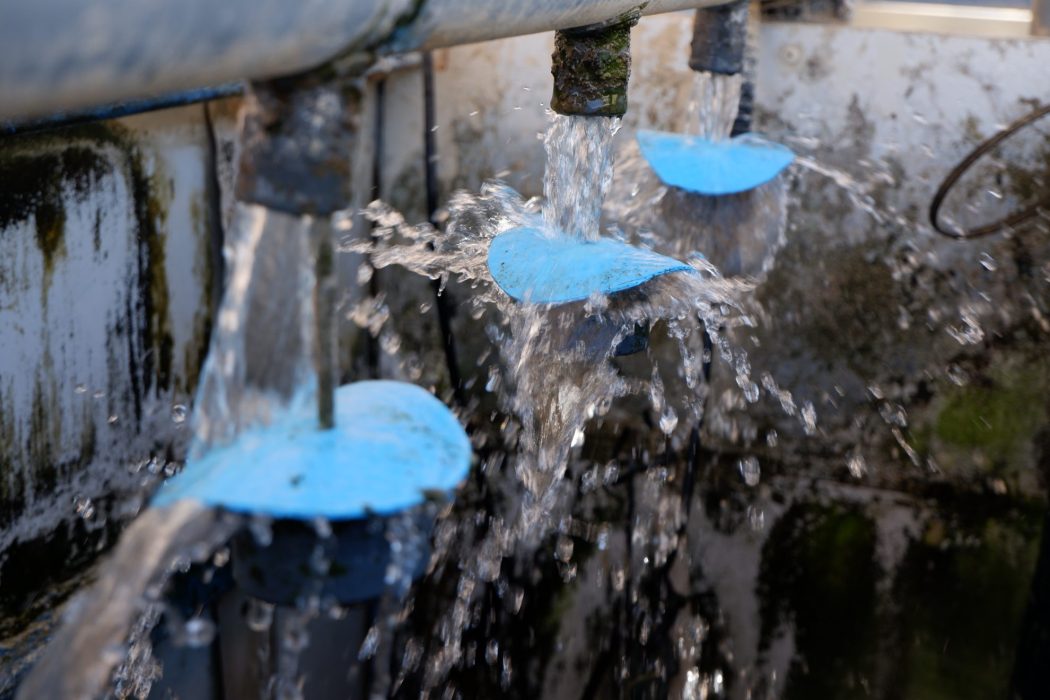
WaterGen
An innovative technology that extracts water from the air and uses condensation to produce fresh water for consumption. WaterGen devices comply with American standards ASSE LEC 2004, and all products comply with EPA, NSF61, and the Federal Drinking Water Standards
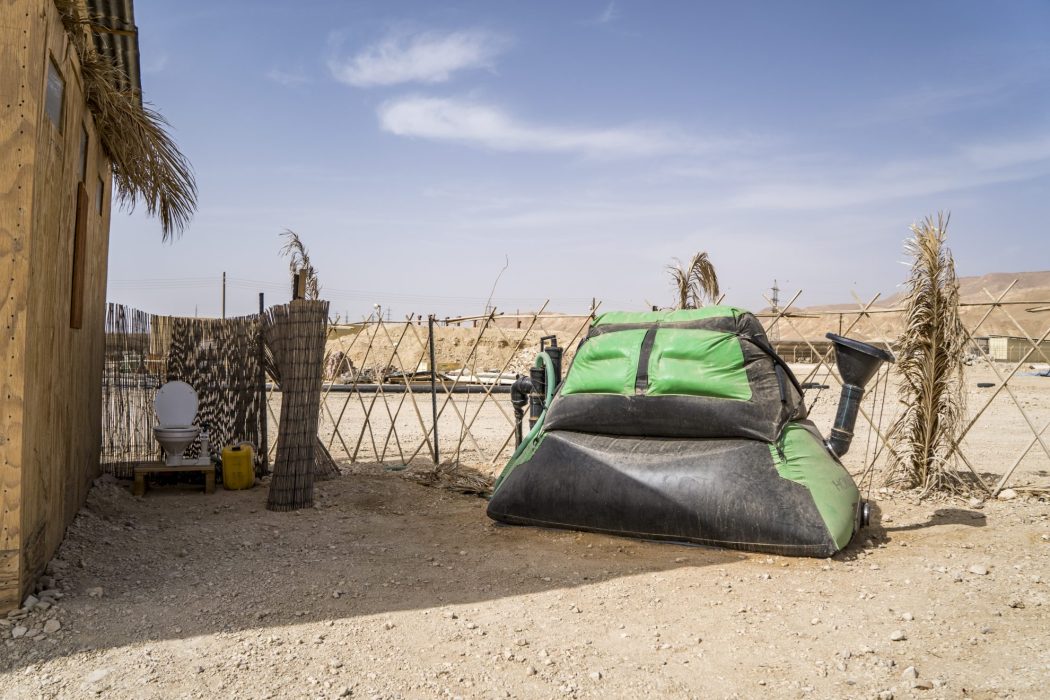
HomeBiogas
Anaerobic biodigesters that convert organic waste into methane gas and liquid fertilizer.
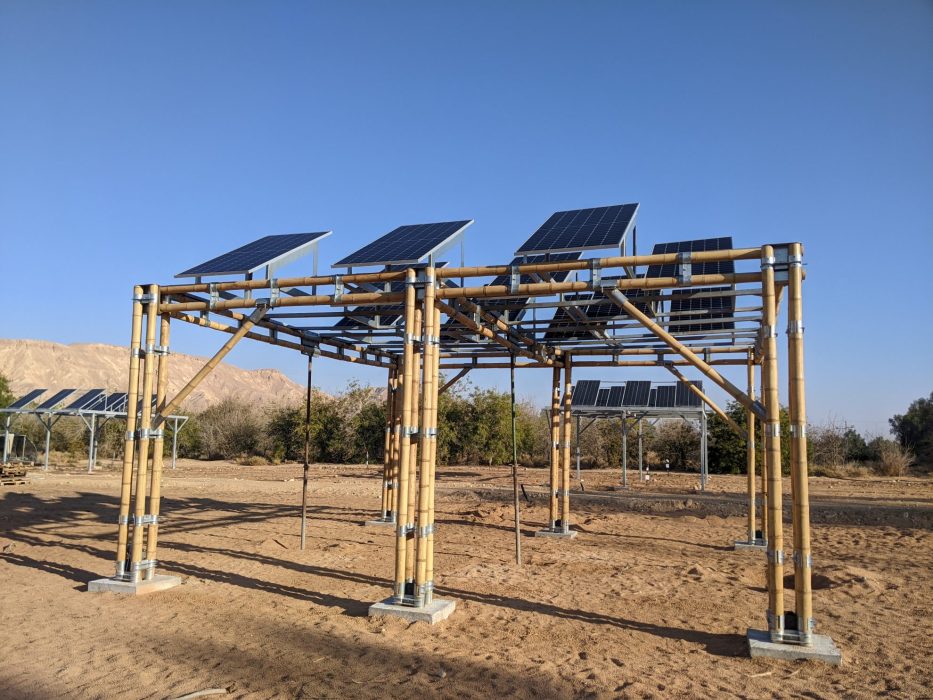
Agrivoltaics
A solar panel structure that produces solar energy and provides shading for agricultural crops.
Climate education: Integrating technology into the school’s curriculum
Complementing the featured technologies, the Arava Institute developed a comprehensive training course for leading teachers and students to ensure proficiency in managing and operating the off-grid school system. The Institute also designed an environmental curriculum that will support the school’s transformation as a model center for climate education in the Negev-Naqab region.
Rehabilitating the Besor–Hebron–Be’er Sheva watershed
The future of the Besor-Hebron-Be’er Sheva watershed is intricately linked with the urgent need for Bedouin communities to gain access to critical water, sanitation, and energy infrastructure. These communities currently face significant challenges as they cannot depend on nearby energy grids, forcing them to resort to costly diesel generators. This reliance not only strains their resources but also leads to tensions with local authorities, and environmental degradation through pollution. Due to these issues, all Bedouin schools in the region rely on unlined cesspits for sanitation, a situation exacerbated by irregular emptying despite legal recognition. These cesspits frequently overflow, releasing raw sewage that contaminates the surrounding environment and aquifers with harmful pollutants such as nitrogen, cadmium, and lead. Addressing these pressing infrastructure needs is crucial not only for the well-being of Bedouin communities but also for safeguarding the ecological integrity of the watershed and its vital resources.
Culturally-affirming technology and partnership-driven approach
Shaped by centuries of semi-nomadic life in the desert, Bedouin culture bound by a strong mindset of independence, self-sufficiency, and resilience. Now facing challenges to obtain resources, many Bedouins live in conflict between the pressure to assimilate and the desire to preserve autonomy. For example, rainwater harvesting techniques have been foundational to Bedouin water security and food production; however, they are considered illegal under Israeli law. In contrast to sacrificing traditional ways of life in order to access critical infrastructure, decentralized technologies enable adequate services onsite that maintain Bedouin independence. Through close collaboration with local stakeholders, the Arava Institute aims to additionally foster a sense of ownership and empowerment within the community with its partnership-driven model.
From marginalization to community resilience
Al-Furaa’s newly implemented Off-Grid Hub demonstrates the success of decentralized WASH and energy technologies in real time. Serving Israel’s most marginalized demographic and within one of the world’s harshest climates, the Al-Furaa Off-Grid Hub emphasizes the role of off-grid technologies in building community resilience in even the most highly stressed conditions. Through the implementation of technologies across the food-energy-water nexus, this project represents a holistic and transformative approach to addressing the complex challenges faced by Bedouin communities in Israel, and paves the way for a more inclusive future for off-grid communities worldwide. By embracing principles of circular economy, the Al-Furaa Off-Grid Hub promotes resource efficiency and waste reduction, contributing to the long-term sustainability of these communities.
This project is generously supported by: ICA, the Israeli Ministry of Environmental Protection, the Atid Education Network, the Kathryn Ames Foundation, and the University of Maryland Global FEWtures Alliance.

